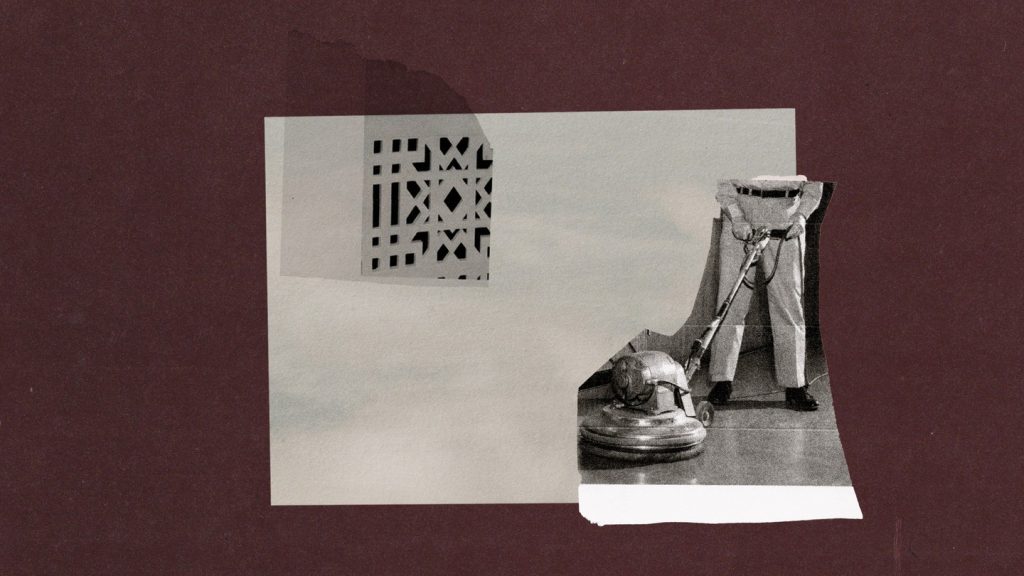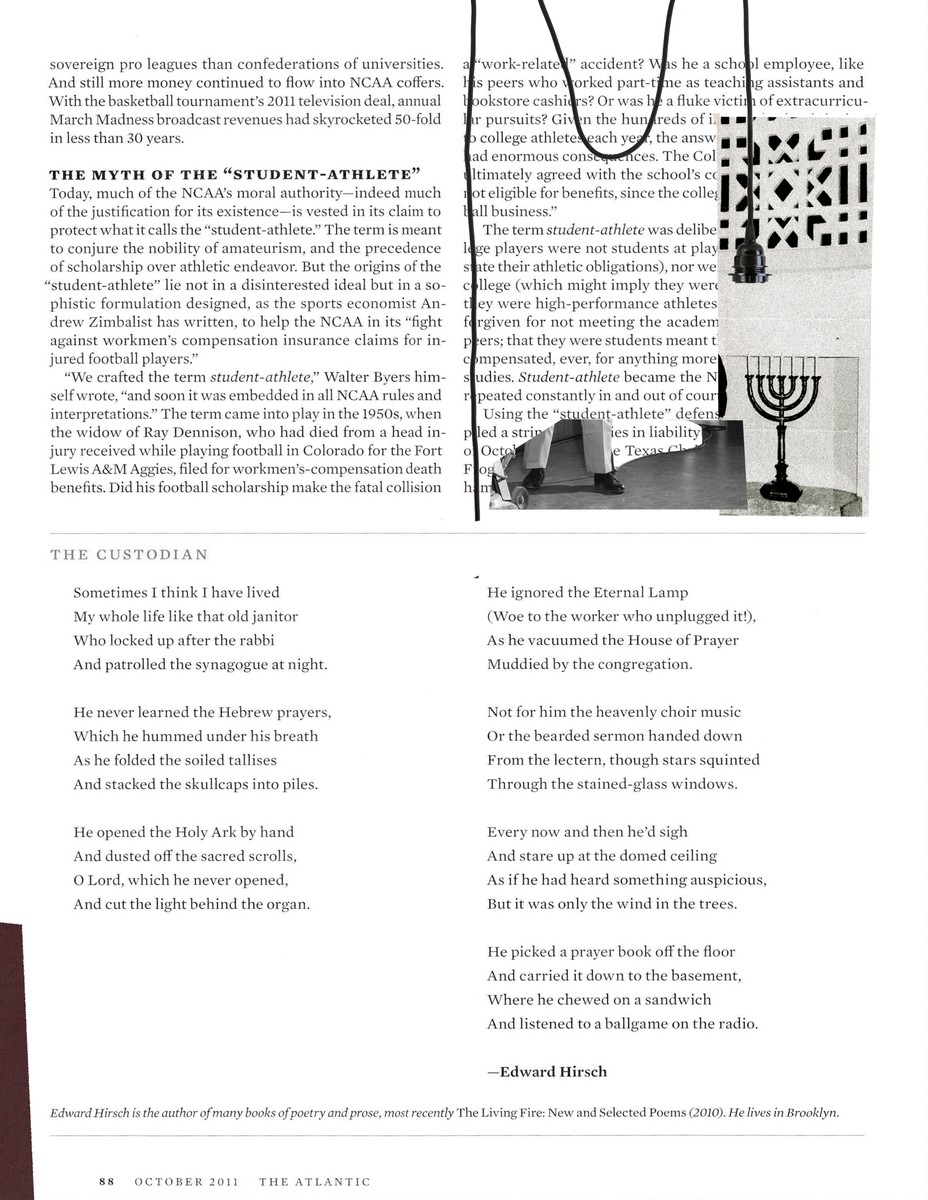The Custodian
2 min read
Edward Hirsch didn’t always write poetry for a living. He’s been a busboy, a railroad brakeman, a garbage man; he’s worked in a chemical plant and in a box factory. “You never forget,” he once told an interviewer, “what it means to punch a clock.” Perhaps for that reason, he’s written frequently about labor: the quiet dignity of getting something done, the sense of purpose that pulls many of us out of bed each morning, the way that even straightforward little tasks can structure one’s days—one’s life. Work is strangely absent from much of contemporary poetry, he said in 2018, despite the fact that “most people’s lives are consumed by their jobs.” His corpus is something of a corrective.
In “The Custodian,” a synagogue’s janitor performs his humble duties: dusting off scrolls, folding tallises, turning out the lights. The chores are mundane, but he does them respectfully and thoroughly—and in that sense he contributes to the congregants’ sacred experience. A shomer—a keeper or guard—is an important role in Judaism, one that might involve staying with a body until its burial, or ensuring that the ingredients used in a kitchen are kosher. It’s not so different from the more general meaning of custodian: a person who looks after something. What’s really holy, Hirsch seems to imply, is not just a synagogue’s glittering stained glass or the imposing notes of the organ, or even the words of the prayers. It’s all the small acts of care that people carry out every day—simply because, as Hirsch once wrote in another poem, “that’s the job.”
By the time he wrote this poem, Hirsch had long ago quit his manual-labor gigs. He was versed in Jewish custom. So if we’re to read it autobiographically, why does he say he’s lived his “whole life” like the janitor? I wonder if it has something to do with Hirsch’s vocation. As a writer, he is fundamentally an observer, attempting to record or interpret experiences from a remove. A custodian, too, operates at a distance; to keep watch over something, you have to stand apart from it. But both of these laborers brush up against something transcendent, even if only briefly. For the janitor, it’s the temple’s song and ritual and faith; for Hirsch, perhaps, they’re the flashes of beauty or fragments of truth that he may not be able to fully capture or even fully understand—but can try to document, and thus protect. Neither undertaking involves much glory; each is just an honest effort made anew each day. That’s why both are profound.

You can zoom in on the page here.



